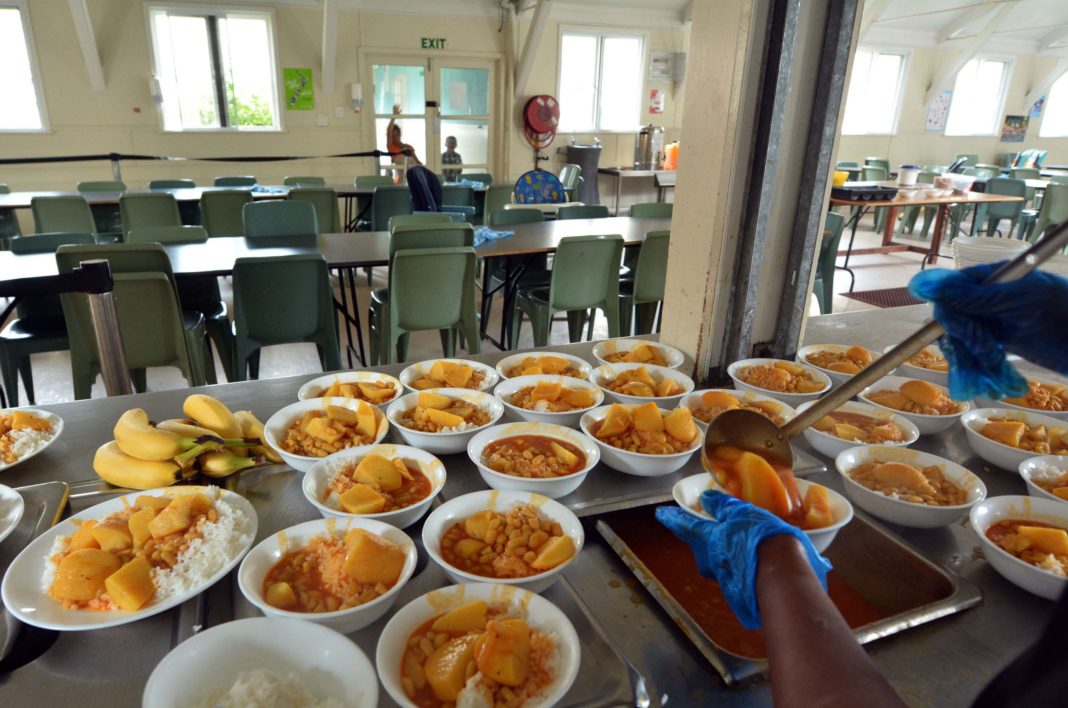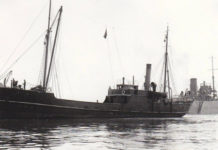Whenever I hear of someone whose activity makes them a ‘role-model’ for us all, I seize the opportunity to profile them – after all, we have too many persons making the headlines for all the wrong reasons.
I now single out, then, those individuals who allow their whole lives to be turned upside down in order to go and help today’s refugees at first hand – often without even the back-up of a helping organization.
One such hero is a 26-year-old man from Malaysia who set up what was practically a one-person aid-post on the Greek island of Lesbos. When the refugees actually land on the beach, there’s no state or international organization in place to receive them. But Rayyan Harries is there with his soup-kitchen to offer them sustenance and a welcome.
A lover of food, foreign languages and travel, Rayyan had planned a stay in Rome to sample the language and the cooking. But then he saw the images of refugees struggling with their fate – and of 3-year-old Alan Kurdi washed up dead on a beach.
“When those photos emerged”, he tells us, “I thought that I just cannot go to Rome and leave these people like this”.
A travel blogger, he persuaded Malaysia Airlines to first get him as far as Paris – before making his way to Greece. By profession a digital strategist, he now works his IT job remotely for five hours every morning. But for the rest of the day he’s supplying soup, tea, sandwiches, biscuits, croissants, milk and juices to on average 1,500 new arrivals daily.
“We’re talking”, he tells us, “about helping other human beings that have the same heart and the same blood as you and me. I cannot see another human being hungry or dying … I want to give people hope as they continue their journey”.
Compassion: it makes us human
Another star among Damian MacConUladh’s account of people who voluntarily uproot their lives to go and help, is Fiorella Crotti. More accustomed to the relaxed summer of a Barcelona lifeguard, she has lately been keeping watch with a colleague on the 9 kilometres of water where refugees try to cross from Turkey to Lesbos.
“At least”, she says, for the refugees “it’s important that they are in Europe – where they can start to dream again”.
A 14-strong medical group, too, has gone out there from Ireland.
All of these could have said, “Those refugees are tragic – but they’re far away”. Instead, the volunteers allowed themselves be jolted out of their ‘comfort zone’.
Hearing their words, we recognize that it was compassion which drove them. And compassion is what makes each one of us human. Those couldn’t quench compassion’s flame.
Compassion is also what makes us Christian. “I was hungry and you fed me”, said Jesus, “a stranger and you received me … sick and you took care of me”. In the scene where he describes the Final Judgment, Jesus makes compassion the supreme criterion.
I’ve already written about volunteers who’ve gone to help along the refugee-route through Eastern Europe. And that Irish medical group consisted of 5 nurses, a GP, a surgeon, 2 emergency medical technicians, a first responder and 4 general logistical volunteers.
Their fundraising brought in €23,000 in a week – so that they were able to provide de-fibrillators, re-useable resuscitators, night-vision binoculars, and emergency first-aid equipment and medicine.
With the convoy were delivered also thousands of rain ponchos, fleece blankets, foil blankets, back-packs. (Not to mention those others all over Ireland who in their own time collected supplies – and sometimes drove the delivery-trucks across Europe).
Three refugees at Christmas-time
The outpouring of compassion in many cases, it seems to me, resonates with the Christian story of those three displaced persons – Mary, Joseph and Jesus – having been forced to find refuge themselves.
Compassion, however, is a virtue which we can find easy to pay lip-service to – but which can exact a heavy price, if we determine to fully act on its demand. It’s here, one more time, that we discover the need for energy-of-spirit: which in many cases will be motivated from religious devotion.
All too easy, as I say, to express admiration for the ideal – but to then suddenly pull back, once we notice what changes might be involved in the whole landscape of our life.
Those brave individuals who did ‘make the break’ (for however long or short a period) to go and help the refugees, keep us on our toes – free from complacency – by their example.
Indeed, Jesus pointed to this as the task of his followers – to be ‘salt of the earth’ and ‘light of the world’. Salt – in his day – was used as a preservative to prevent foods ‘going off’ or just going stale; and his followers – with all their weaknesses – were to be role models lighting a path for those around them.








